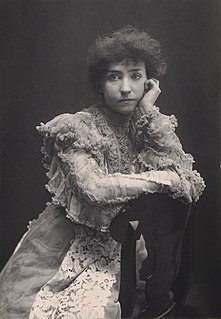A Quote by Kay Redfield Jamison
Conditions of thought, memory, and desire, persuaded by impulse and irrationality, are influenced as well by personal aesthetics and private meanings.
Related Quotes
I felt that I could swim for miles, out into the ocean: a desire for freedom, an impulse to move, tugged at me as though it were a thread fastened to my chest. It was an impulse I knew well, and I had learned that it was not the summons from a larger world I used to believe it to be. It was simply a desire to escape from what I had.
I think I've got a peculiar disease. I call it the curse of history, and it has to do with the fugitive absence/presence of both personal and collective memory. At first I thought it was a kind of personal illness, just related to time, private time, time that passes in one's life. So I decided to forget and throw myself into the future.
Karma is experience, and experience creates memory, and memory creates imagination and desire, and desire creates karma again. If I buy a cup of coffee, that's karma. I now have that memory that might give me the potential desire for having cappuccino, and I walk into Starbucks, and there's karma all over again.
To say that historical conditions made personal life possible, and with it the self-consciousness that allowed psychoanalysis to emerge, is to tell half the story: one also has to consider that the erotic impulse, ever pressing for satisfaction, had something to do with making the history that encouraged its expression.
Confusion conditions activity, which conditions consciousness, which conditions embodied personality, which conditions sensory experiences, which conditions impact, which conditions mood, which conditions craving, which conditions clinging, which conditions becoming, which conditions birth, which conditions aging and death.
The desire to punish is a desire that emanates from a place of equality and justice. The lesson I feel that we have to confront is that that impulse is so easily transmuted into something corrosive and corrupt in how it's actually put into practice. That's the danger. It's not that the impulse is wrong or unjust or not totally righteous. It's that the ways in which the system that operates, the system that we've constructed tends to not deliver the promise of equity we might want, when we look to the system to provide it.
All men, in the abstract, are just and good; what hinders them, in the particular, is, the momentary predominance of the finite and individual over the general truth. The condition of our incarnation in a private self, seems to be, a perpetual tendency to prefer the private law, to obey the private impulse, to the exclusion of the law of the universal being.






































